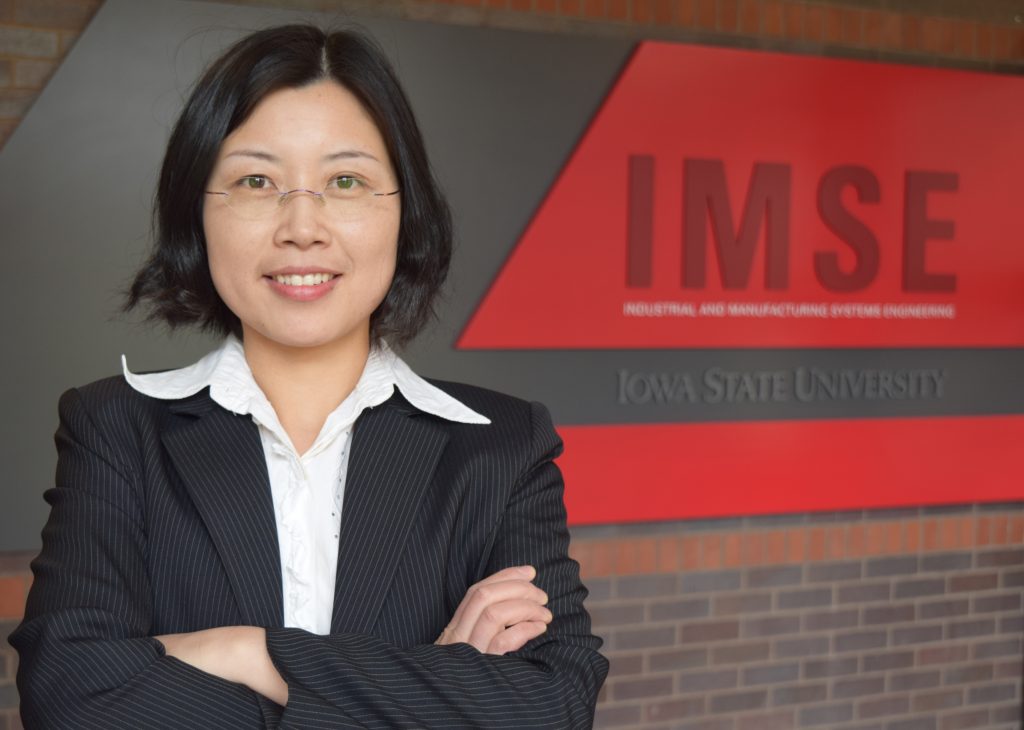An industrial and manufacturing systems engineering (IMSE) researcher who was recently named a Plant Science Institute (PSI) Faculty Scholar is working on a series of projects that she thinks can help farmers in Iowa and beyond.
Guiping Hu, an associate professor from IMSE, was recently named to PSI’s second cohort of faculty scholars. Hu is one of two researchers from the College of Engineering named to the newest cohort which also includes researchers from agronomy, genetics, development and cell biology, plant pathology and microbiology, and statistics.
“I’m trying to design a decision-support system to advance plant breeding through optimized management and planning,” she said.
Hu is currently working on three separate research projects which fall within in the focus of the PSI. The first project looks at resource allocation strategies in genomic selection.
“What we are trying to do is use the gene-sequencing information in the previous generation, do some data analytics, which can tell them that by crossing one plant with another plant in a given timeline you’re going to achieve the goal in the most time-efficient as well as cost-effective way possible,” she said.
Her second project examines the field experiment design. This research aims to integrate statistical modeling, cluster analysis, and mathematical programming tools to optimize the sample experiment and field test design. The goal is to optimize the representativeness of the genotype, field profile, weather condition, and agriculture management options. With good field experiment results, the predictive model will be more accurate.
Hu’s third project looks at precision farm management under the variable soil and uncertain weather conditions. Hu and her research team have conducted case studies in Iowa, Nebraska, and California. The team plans to use these data to develop a predictive model which they hope will help farmers to determine the best type of seed to plant on a given piece of land. Additionally the model will help farmers know when to plant, when to apply fertilizer and pesticides, and how to develop an effective irrigation schedule.
“We have designed an integer program which shows that if we use the model it improves the profitability by about 100 percent compared to not using the model,” said Hu. “The intent here is to improve plant breeding when the budget and resources are limited.”
Hu said she thinks the uniqueness of her industrial engineering skillset is part of the reason she was named a PSI Faculty Scholar. Many of the topics she teaches in IE 312: Optimization will be relevant to her PSI research, particularly in regard to optimization and operations research. In the fall, Hu will teach a new class – IE 487X: Big Data Analytics and Optimization – which she says will be even more relevant to her PSI research because of its focus on data analytic tools that can be utilized in applications in predictive phonemics and related management practices.
“These are huge data sets so the first step is how do you analyze the data then use the data to make effective, efficient and timely decisions,” Hu said.
Hu said she hopes to advance Iowa State’s missions as a land-grant university through her research. She is developing two tools that she thinks will be beneficial to Iowa farmers. The first is a data analytics tool that can be used to develop a superior seed and the second is a management tool that farmers can use.
“I am collaborating with a couple of professors from agronomy and economics to design an on-line tool that allows farmers to input data about the type of seed, the location where it was planted, and other information and it will give output on best management practices, projected yield, and other information.” she said.
